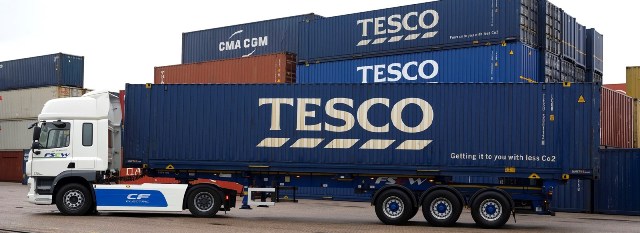
UK’s first commercially used fully electric heavy freight articulated trucks
Tesco will power into the new year by launching the UK’s first commercially used fully electric heavy freight articulated trucks. Two new 37 tonne DAF electric vehicles will transport food and other products from Wentloog rail terminal outside Cardiff to Tesco’s distribution centre in Magor, Wales, in partnership with logistics and international freight forwarding company FSEW. Heavy goods vehicles make up around 16 percent of the UK’s domestic transport emissions and addressing this can play a significant role in delivering the UK’s net zero ambitions. Despite significant advances in battery technology and charging infrastructure for smaller vehicles, there hasn’t been a commercially viable solution for electric haulage and distribution until now.

These first two lorries will replace around 65,000 diesel-fuelled road miles with clean green energy, removing 87.4 tonnes of CO2e per year. To power the new service FSEW has installed charging points at its site in South Wales that provide enough energy to power these large vehicles for 100 miles before needing to charge again. At around 30 miles each way the Wentloog – Magor journey is an ideal location to understand the potential and range of these lorries for use throughout the UK and elsewhere in Tesco’s fleet.
By demonstrating that electric HGV transportation is commercially viable, this service will contribute to encouraging wider investment in technology and innovation that will support the haulage sector’s efforts to reduce emissions and air pollution. It will also contribute to Tesco’s efforts to achieve net zero emissions in its own operations by 2035, and FSEW’s work to replace more than 40 diesel vehicles with low-carbon alternatives and switch to fleet-wide zero-emissions transport operations by 2025.
Information Source: Read More
Oil and gas, press , | Energy, Climate, Renewable, Wind, Biomass, Sustainability, Oil Price, LPG, Solar,Electric

